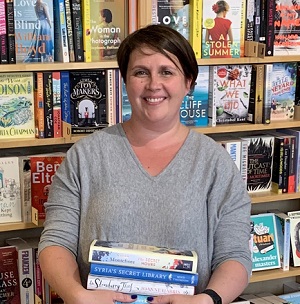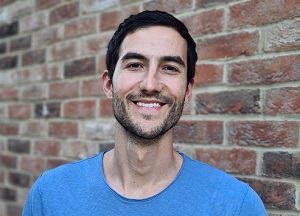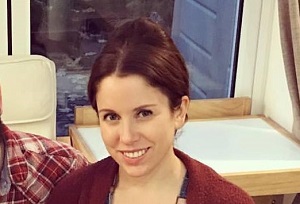
Trying to identify your transferable skills? Wishing you knew what your strengths were, so you could really get going on your shift? Be careful. Natasha shares 3 reasons why starting from ‘skills’ could be stunting your options – and what to do instead.
If you’re trying to come up with ideas for your future career, one of the first questions you’ve probably asked yourself is:
What can I do, given my skills and experience?
What am I good at, and what does that say about where I should look?
“What am I good at?” is an important question. If you’re going to make a living at something, of course it needs to be something that you’re skilled at. Plus, being able to identify and communicate your abilities gives you confidence, and a set of criteria with which to start your search.
It’s also probably the thing that feels most ‘grabbable’ right now, particularly if you have no idea at all what you want to do next. What you want to do may feel like a big, blurry, faraway, out-there question – at least if you focus on your skills, you know where to look. It’s you, after all. It’s right here.
But using 'skills' as the starting point for your career search can be problematic.
Logical though it may feel at first, basing your career search on your skill-set is likely to limit your options and stunt your progress.
Here’s why.
1. You can’t see your skills clearly

“Here is the ultimate irony of the divided life: live behind a wall long enough, and the true self you tried to hide from the world disappears from your own view!
The wall itself and the world outside it become all that you know. Eventually, you even forget that the wall is there — and that hidden behind it is someone called 'you'."
– Parker Palmer, A Hidden Wholeness: The Journey Toward an Undivided Life
In the first week of our Career Change Launch Pad, our participants get an opportunity to find out how people in their lives honestly see them, and what they’re most valued for. And 90% of the time, they’re blown away by much of what they hear.
Why? Because we’re not great at seeing ourselves clearly. Our self-perception is muddied by all kinds of factors, including self-doubt, years of pretence, and the numbing effect of familiarity.
So if you’re struggling to get a handle on what you’re good at, you’re not alone.
There are two main reasons this feels so tough:
First, there’s a great paradox in trying to identify your own skills.
The things you’re best at are likely to be the hardest for you to see. Since they come so naturally to you, you don’t think of them as special, as particularly valuable, or even as ‘skills’ at all. Surely everyone can do that?
And because of this, your greatest strengths can easily get overlooked and discarded, without you even realising it’s happening.
Second, human beings are surprisingly good at adapting to their surroundings. It’s a survival mechanism – being able to adjust and fit into our environments, even (or perhaps especially) when we’re not happy in them, keeps us safe. You’ve probably built up a skill set that you’re proficient at, regardless of whether those skills play to your natural talents. You might feel like you’re leading a double life, where you’re one person at work and another at home.
And when you’ve spent years ‘keeping up appearances’ in a career that doesn’t really suit you, there’s a good chance you’ve lost touch with the person – and the skill-set – behind the disguise.
It would be fairly easy for you to rattle off the skills you use in your current job. But the skills you might have beyond those? You can’t remember what they are, and even if you have a few hunches, you haven’t used them in such a long time that you’ve lost faith in their strength.
Being able to confidently identify and talk about some of your core skills is a powerful career change tool. But, as you may already be experiencing, it’s a lot harder than it sounds – and if you’re going to rely on it to set the context for the direction of your shift, you could be building on a rocky foundation.
2. You won’t look widely enough

“If you’re constantly looking in the same direction that everyone else is looking in because the culture is telling you to look that way, you are never going to see anything original, or notice anything original, which is really counterproductive.”
– Rob Walker, journalist and author of The Art of Noticing
The traditional world of work operates in a linear fashion.
You look at your past, the experience you’ve had and the skills you’ve demonstrated, and use those to decide what kinds of industries and roles you’d be accepted into.
“Based on your skills and experience, the careers available to you are X, Y and Z.”
The trouble with that is that as someone looking to change career, you’re not following the path of the traditional world of work. It’s unlikely that the logical progression from your current line of work is appealing to you. After all, if it was, you’d probably be happy to stay where you are.
And the range of possibilities that this line of thinking creates is usually pretty slim, because when you’re driving with your hands on the rear-view mirror, you’re only able to steer towards places you’ve already been.
Some career changers do make shifts into roles that comfortably fit the linear narrative of their work history thus far. And many people also move into careers that they never would have predicted at the start of their shifts – and that crucially, they wouldn’t even have considered if they’d based their options on the skills they already had.
None of this is to say that you can’t – or shouldn’t – use the skills you’ve already developed in your next career.
What it means is that filtering and limiting the careers you’ll consider by what you have listed on your CV or resume isn’t likely to give you the best range of options to choose from.
3. You might miss out on something you could get good at

“Start changing ‘is’ to ‘could be’.”
– Adam Grant, organisational psychologist
Even if you do search widely, if your mindset is stuck in the question "What am I good at?", you’re likely to disregard options that you don’t yet have experience in, but that you could absolutely get good at, given the chance. You may not even fully realise that you’re doing it.
This is another version of the classic experience catch-22, where the skills you can list on your CV are probably connected to experience you’ve already had in the workplace. But just because those are the skills you’ve had the opportunity to develop, doesn’t mean they’re the only ones you’re capable of.
You can develop new skills (as long as they’re in your general wheelhouse).
It’s much harder to develop an attraction to, and excitement about, a field or industry.
You may well have talked yourself out of career ideas already, thinking: “I can’t do that – I’ve never done it before and I probably wouldn’t be any good at it anyway.”
Assumptions like these may be true – maybe you wouldn’t be any good at it.
But maybe you would.
What to do instead
1. Set your past aside to start
It feels counter-intuitive, but the best thing you can do at the start of your career change is to explore as widely as possible – regardless of where you currently think your existing skill-set would apply.
Don’t dig around in your past for a permission slip – face front, and go play.
Take Sarah Dennis, for example, whose solid background in finance gave her a clearly defined skill-set. When she made her first attempt at shifting her career, that skill-set defined her next steps, and she ended up feeling just as unhappy as where she’d started.
 “I reached a point, eight years into my time with the company, when I approached my manager and told him that I was feeling unfulfilled. As a result, I was offered the opportunity to move to New York to set up a new team. I happily made the move and quickly settled into life in the States, but it soon became clear that, although I was in a different (and amazing!) city, the work itself hadn't really changed.
“I reached a point, eight years into my time with the company, when I approached my manager and told him that I was feeling unfulfilled. As a result, I was offered the opportunity to move to New York to set up a new team. I happily made the move and quickly settled into life in the States, but it soon became clear that, although I was in a different (and amazing!) city, the work itself hadn't really changed.
“I applied for a new role internally and was given the job. Things started to improve as the work was more varied, but it still wasn't ideal.”
Sarah’s background was firmly established, and her skill-set was strong. But basing the options she considered on what she’d done in the past was just creating more of the same in her future. And yet, she couldn’t imagine anything else.
“I'd spent so long working in the same environment, for the same organisation, that I couldn't possibly think about doing anything different. I'd spent some time earlier that year working with a career coach who'd tried to help me think about different options, but I was so institutionalised that I just couldn't envisage life outside the world of finance.”
For Sarah, learning about ‘life outside the world of finance’ looked like backpacking around South America and South East Asia for ten months – breaking out of the mould she’d inhabited for so long, discovering what else was out there, and allowing herself to consider something completely different for herself.
Had Sarah used her finance skills as the foundation for the possibilities she considered, setting up and running her own bookshop would never have occurred to her.
“I remember having a conversation with a lovely Scottish couple whilst on an island off the coast of Chile. They told me about a bookshop in their town that had opened a few years earlier and was doing a roaring trade. Hearing about this really inspired me to start researching the book trade to see whether it was something that I could do.”
And it turned out that it was absolutely something Sarah could do. Few people would have looked at Sarah’s work history and drawn a straight line from a finance skill-set to the book trade – but it worked.
Backpacking around the world is probably not a possibility for you. But the principle behind what Sarah did still counts.
Practise considering everything as a possibility, until you’ve proven to yourself that it’s not.
Don’t focus on what’s in your past; focus on what’s out there in the world.
Look for opportunities to find out about things you’ve never heard of before. Follow your curiosity about topics and causes and ideas. Broaden your world-view wherever you can.
Because if you define what you do next by what you’ve always done, you’ll get what you’ve always got.
2. Seek energy first
Once you’ve got into the habit of finding out what’s out there, filter-free, you can start to apply some filters to your explorations.
And the first set of filters your career options should pass through is the question:
“Does this energise me?”
Are you excited by it? Is it engaging? Does it spark your curiosity?
If the answer is yes, then and only then should you look at whether you’re good at it – or could get good at it.
Not only will you be starting from a stronger foundation, you’re also far more likely to stay the course with retraining or developing new skills if you’re doing it in pursuit of something you’re really inspired by.
Stevan Popovic had never written a line of computer code in his life when he started to think about making a career change. Making a shift from sales to software development didn’t make a lot of sense, looking at his CV.
But the fascination he felt when he watched coders at work was strong enough to make the hard work of retraining worth it.
 “I'd wanted to build side projects but without any technical skills, I felt restricted.
“I'd wanted to build side projects but without any technical skills, I felt restricted.
“I looked at developers as if they had superpowers, building products from nothing.
“I became convinced that learning to code would be useful, either in building a product myself or in being able to better hire, recruit and speak to technical people.
“So, I started teaching myself how to code in my spare time.”
By starting to play with coding on his own first, Stevan tested out his idea before committing to retraining in a more official way.
And the fact that he was genuinely energised by the idea of coding was really important in helping him do the hard work of retraining:
“I started by thinking that I would be able to have a relaxed life around the course, but I soon realised to get the most out of it you really have to go all-in. That meant making time for the homework in the evenings and weekends.”
The thought of retraining like Stevan might feel unappealing to you, but you don’t have to go back to school to get good at something new. Plenty of employers will help you learn on the job, or you can pick up new skills on your own outside of working hours.
Once you’ve found some areas that you’re excited to move into, start talking to people in the industry to find out what the real skill requirements are (they’re not always what they seem).
You may need to do a formal qualification, or you may find that there are ways you can learn the required skills on your own.
And starting to learn in small ways on your own is a great way to ascertain whether or not something is in your natural skill-set.
Try some home projects related to the area you’re exploring and feel what it’s like to get your hands dirty.
If you’re thinking about journalism, set yourself a deadline and write an article to meet it. Curious about the world of health and safety? Find a short course online and see how you take to it. Considering a career in the social impact sector? Reach out to an organisation you admire and offer your help.
Not only will you be getting a sense of where your natural talents lie, you’ll also be building up experience that you can point to later, when speaking to potential employers or clients.
3. Consider your whole self
It can feel frivolous and unrealistic to think of your non-work activities as tangible, important skill-sets.
But when you’re thinking about making a major career change, where your ‘official’ skills may not be explicitly transferable, your abilities outside the workplace are just as relevant.
When Catherine Carroll left work to care for her daughter, she lost her connection to the skills she’d been using as a teacher. That had a big impact on how she felt about herself.
 “I felt like I'd lost my previous identity and become almost invisible. The mundane tasks involved with looking after a baby were monotonous, and I definitely felt de-skilled.”
“I felt like I'd lost my previous identity and become almost invisible. The mundane tasks involved with looking after a baby were monotonous, and I definitely felt de-skilled.”
But this loss of her workplace identity had an unexpected effect. With the added nudge of an insightful conversation with her mum, it forced Catherine to look at her skills as a whole person, not just as someone skilled at her paid job.
“I made a list of the skills a stay-at-home mum / dad needed, (organisation, time management, behaviour management, budgeting, patience, communication, empathy, creativity, storytelling). The list seemed to go on and on; it saddened me that so many of these skills are not recognised.”
Looking at her wider skill-set left Catherine clear that she was capable of far more than she had been giving herself credit for. That realisation became the springboard – and the inspiration – for her new company that writes, designs and illustrates children's stories.
You, too, will have skills that aren’t currently listed on your CV or résumé; capabilities that you don’t consider to be ‘relevant’ because they’re not listed under your job specification; talents that you won’t include in your thinking, because they’re ‘not real skills’ or ‘irrelevant in the workplace’. Allow them all into the mix.
You may need to learn to showcase them in a new way, but they still count.
Keep in mind also that the more obvious and irrelevant your skills and abilities seem, the more likely they are to be real goldmines.
Get external perspectives on what you’re uniquely talented at – and not just from people who know you in a work context. You may be surprised by what you discover.
The thought of starting to look for your next career without placing your skills front and centre might feel unsettling, or even illogical
After all, it’s an approach that probably reverses everything you’ve learned about the way the world of work functions. But we’re not saying that your skills don’t count, nor that you shouldn’t consider them at all in your search for fulfilling work.
What you’re good at matters – the abilities you’ve worked hard to develop, and those that you seem to have been born with.
The key is to recognise the potential limitations of using your skills as a starting point, and a first-filter for the careers you’re willing to consider.
You’ve almost certainly got more options for your future than you think.
What happens when you start thinking beyond "What am I good at?" Let me know in the comments below!





